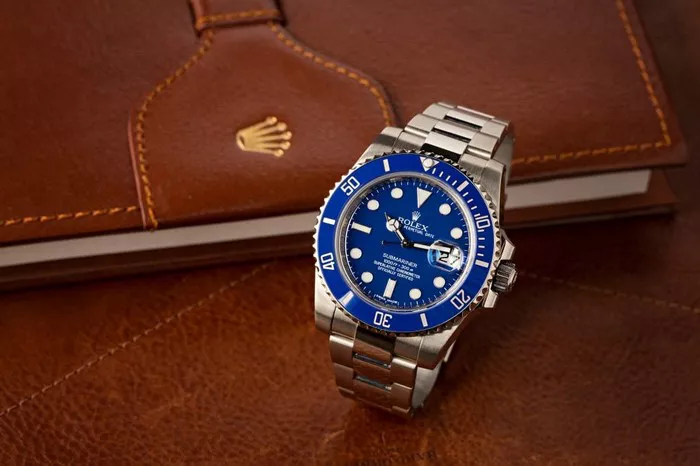The allure of a Rolex timepiece extends far beyond its precision and prestige; it lies in the meticulous craftsmanship that defines the brand. A common question that resonates among watch enthusiasts is whether Rolex watches are truly handmade. In this exploration, we delve into the intricate world of Rolex craftsmanship, examining the processes that contribute to the creation of these iconic timepieces and determining the extent to which human hands are involved in their production.
Understanding Rolex Craftsmanship:
Heritage of Handcraftsmanship:
Rolex, founded in 1905, has a rich heritage rooted in the tradition of watchmaking craftsmanship.
The brand’s commitment to excellence has made Rolex synonymous with precision and luxury.
Swiss Watchmaking Tradition:
Rolex hails from Switzerland, a country renowned for its watchmaking heritage.
The Swiss watchmaking tradition emphasizes precision, attention to detail, and the skilled craftsmanship that defines Rolex timepieces.
The Rolex Manufacturing Process:
In-House Manufacturing:
Rolex is distinctive in its approach, as it manufactures nearly all components in-house.
This vertical integration allows for meticulous control over every aspect of the watchmaking process.
Metal Forging and Machining:
The creation of Rolex watch components begins with metal forging and machining.
State-of-the-art machinery is employed to shape and refine materials, ensuring precision and uniformity.
Role of Automation in Rolex Production:
Automated Processes:
Rolex embraces automation for certain aspects of the manufacturing process.
Automated machinery is utilized for precision tasks, such as the cutting and shaping of components.
Enhancing Accuracy and Efficiency:
Automation enhances accuracy and efficiency in areas where the precision required surpasses the capabilities of manual processes.
This approach aligns with Rolex’s commitment to producing watches that meet the highest standards.
The Human Touch:
Hand-Assembling Movements:
One of the distinctive elements of Rolex watchmaking is the hand-assembling of movements.
Skilled watchmakers meticulously assemble and adjust each movement, showcasing the human touch in crafting the heart of the timepiece.
Finishing and Polishing:
Finishing touches, including polishing and detailing, are often performed by skilled artisans.
Hand-finishing contributes to the impeccable aesthetics that characterize Rolex watches.
Rolex Certification Standards:
Superlative Chronometer Certification:
Rolex timepieces undergo rigorous testing and certification.
The Superlative Chronometer certification attests to the precision and performance of Rolex watches, emphasizing the brand’s commitment to quality.
In-House Testing Laboratories:
Rolex operates in-house testing laboratories, where each watch undergoes comprehensive assessments.
These tests ensure that Rolex watches meet or exceed the brand’s stringent standards for accuracy and reliability.
Artisanal Craftsmanship in High-End Models:
Rolex’s Prestigious Collections:
In the creation of high-end models and prestigious collections, such as the Rolex Day-Date or Rolex Submariner, artisanal craftsmanship takes center stage.
Handcrafted details and intricate designs distinguish these watches as masterpieces of horological artistry.
Gem-Setting by Hand:
In certain models adorned with precious stones, gem-setting is often performed by skilled artisans.
Each stone is meticulously placed by hand, showcasing a level of craftsmanship that elevates the aesthetic appeal of the watch.
Balancing Tradition and Technology:
Integration of Technology:
While Rolex embraces traditional craftsmanship, the brand also integrates cutting-edge technology into its processes.
Technological advancements contribute to enhanced precision, durability, and overall performance of Rolex watches.
Preserving Handcrafted Legacy:
Rolex’s dedication to preserving the legacy of handcrafted watchmaking is evident in the meticulous attention given to details that require the human touch.
The brand strikes a balance between tradition and innovation to deliver timepieces that embody both craftsmanship and technological excellence.
Conclusion:
In conclusion, the question of whether Rolex watches are truly handmade requires a nuanced understanding of the brand’s commitment to craftsmanship. Rolex’s vertical integration, in-house manufacturing processes, and utilization of both automation and skilled artisans contribute to the creation of watches that are revered for their precision and quality. While certain aspects of production involve automated machinery, the hand-assembling of movements, meticulous finishing, and artisanal craftsmanship in high-end models underscore the human touch that defines Rolex. The brand’s dedication to excellence, whether through traditional craftsmanship or technological innovation, cements Rolex’s reputation as a horological icon that seamlessly marries heritage with modernity. Ultimately, the answer lies in recognizing the harmonious blend of human skill and technological prowess that characterizes the creation of each Rolex timepiece.

